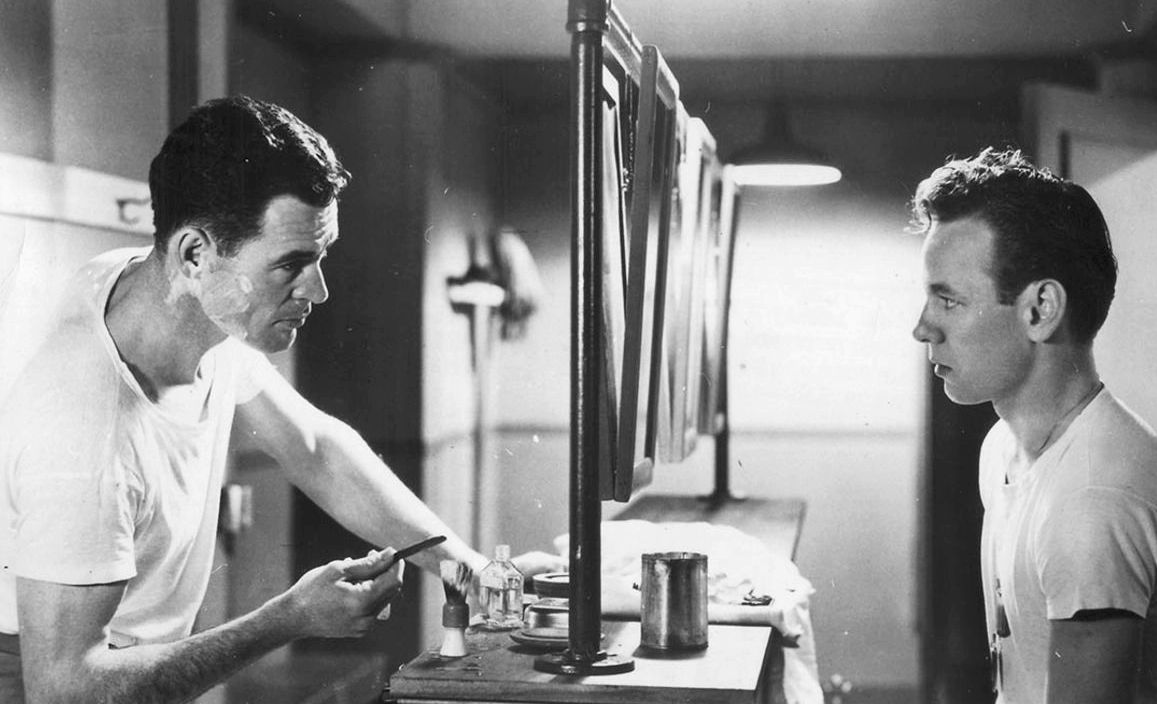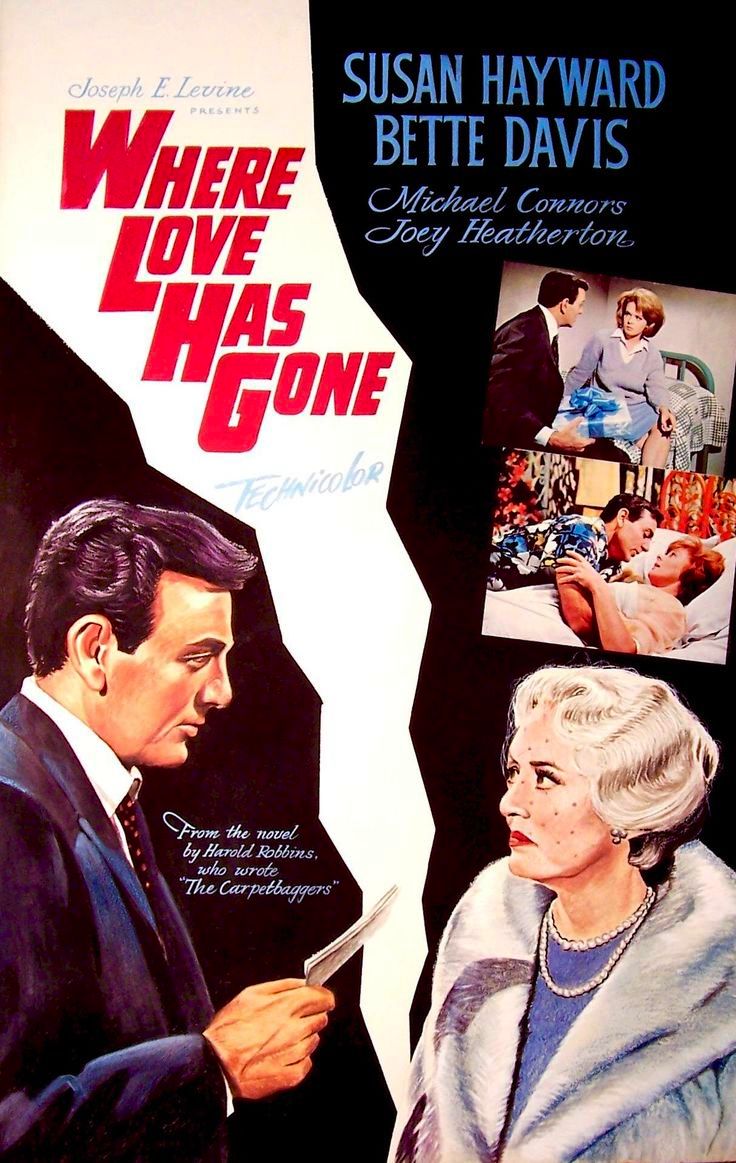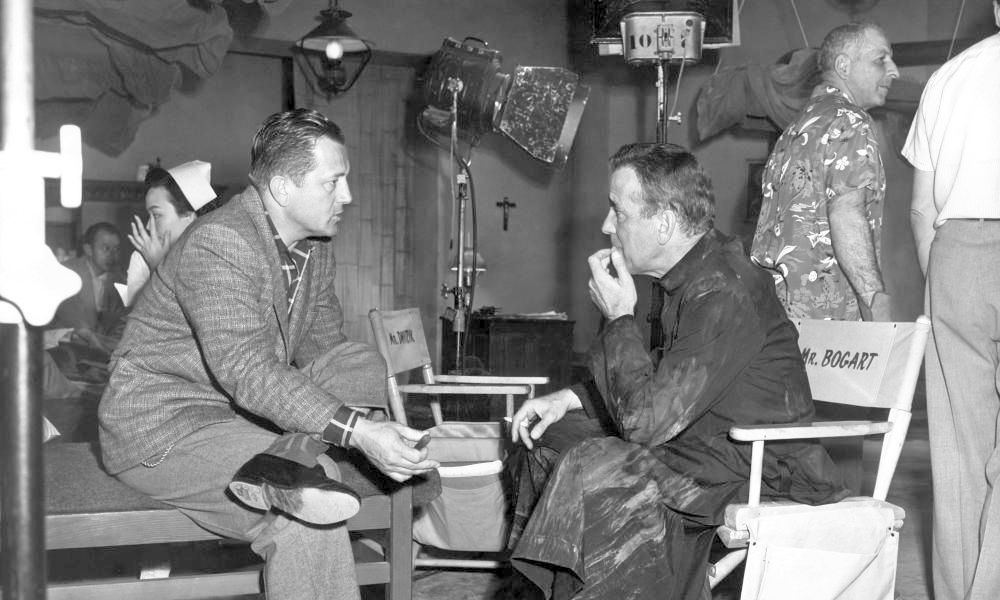"In the mid-'40s, Edward Dmytryk made several superior B-movies that mixed suspense with social comment; but after a clash with the House UnAmerican Activities Committee, he went into artistic decline, ironically with more expensive, prestigious projects." - Geoff Andrew (Film Handbook, 1989)
Edward Dmytryk
Director / Editor / Producer
(1908-1999) Born September 4, Grand Forks, British Columbia, Canada
50 Key Noir Directors
(1908-1999) Born September 4, Grand Forks, British Columbia, Canada
50 Key Noir Directors
Key Production Countries: USA, UK, Italy
Key Genres: Drama, Mystery, Romance, Thriller, Melodrama, Film Noir, Western, War, Police Detective Film, Psychological Thriller, Courtroom Drama, Psychological Western
Key Collaborators: Joseph MacDonald (Cinematographer), Albert S. D'Agostino (Production Designer), John Paxton (Screenwriter), Adrian Scott (Producer), Harry Gerstad (Editor), Roy Webb (Composer), Arthur Franz (Character Actor), Harry Wild (Cinematographer), Joseph Noriega (Editor), Frank Bracht (Editor), Leigh Harline (Composer), Lyle Wheeler (Production Designer)
Key Genres: Drama, Mystery, Romance, Thriller, Melodrama, Film Noir, Western, War, Police Detective Film, Psychological Thriller, Courtroom Drama, Psychological Western
Key Collaborators: Joseph MacDonald (Cinematographer), Albert S. D'Agostino (Production Designer), John Paxton (Screenwriter), Adrian Scott (Producer), Harry Gerstad (Editor), Roy Webb (Composer), Arthur Franz (Character Actor), Harry Wild (Cinematographer), Joseph Noriega (Editor), Frank Bracht (Editor), Leigh Harline (Composer), Lyle Wheeler (Production Designer)
"Dmytryk, one of the original Hollywood Ten, fell foul of the House Un-American Activities Committee (what outrageous nomenclature - a worthy precursor to the modern-day scourge of political correctness in its grotesque ersatz logic) in 1947, and ended up, before he recanted, with a brief blacklisting. His career followed a similar pattern. He directed a trilogy of tight little thrillers in the 1940s, notable for their tough dialogue, enlightened use of location filming, and expressionistic camerawork… His remaining work varied wildly, with belated highpoints occurring in The Caine Mutiny (1954), The Young Lions (1958) and Warlock (1959), although all these later films manifested a rather sorry looseness when compared to the tight, lowly budgeted gems that preceded them." - Mario Reading (The Movie Companion, 2006)
"Independent American director who has tackled a wide range of subjects with uneven results... He made several provocative early features, including Hitler's Children (1943), Murder, My Sweet (1944), and Crossfire (1947), before being caught up in the McCarthy witch-hunt investigations. A period of exile followed. Returning to Hollywood he made a number of prestigious films which lacked the forthright impact of his earlier, smaller films." - The International Encyclopedia of Film, 1972

Crossfire (1947)
"His early films were mostly routine action and light fare. His first interesting work was Hitler's Children (1943), an engrossing anti-fascist drama. Next he directed two exciting suspense thrillers, Murder, My Sweet and Cornered, both starring Dick Powell. Dmytryk won respect among film critics with his 1947 Crossfire, Hollywood's first serious attempt to deal with the subject of racial discrimination." - The MacMillan International Film Encyclopedia, 1994
"To those interested in cinema, as well as social and political history, the name of Edward Dmytryk means two things: a prolific director, responsible for at least one minor masterpiece, and several other superb, low-budget movies. Also, and less happily, his membership of the Hollywood 10, for which he was jailed for six months and nearly lost a career, then at its height. But his career spanned seven decades, and those 1940s highlights deserve to be seen in the context of a life that began in great hardship and ended with a distinguished career as a writer and teacher of film." - Brian Baxter (The Guardian, 1999)
"Action films with extreme tension and characters motivated by obsession and neurosis characterize Dmytryk's style." - William R. Meyer (The Film Buff's Catalog, 1978)
"Edward Dmytryk was at his best in the mid-40s when he displayed a crisp, efficient style which perfectly suited his small-budget, noir subjects, and reflected his training as an editor. He was the first of three leading RKO directors - Robert Wise and Mark Robson were the others - who had been top editors… Unfortunately, the director's work for the large screen never seemed to match the quality of his early small-scale black-and-white successes; nonetheless he continued directing, mainly in Europe, throughout the 60s and up to the mid-70s when he retired." - Joel W. Finler (The Movie Directors Story, 1985)
"He entered movies at 14, working as an office boy at Paramount and eventually moving into the cutting room. After directing some cheap and interesting horror movies, Dmytryk established himself with Murder, My Sweet, a skilfully made film noir with Dick Powell cast out of type as detective Philip Marlowe. Director and actor repeated their success with Cornered… In 1947 Dmytryk was investigated by HUAC and became one of the Hollywood Ten found guilty of contempt of Congress. After imprisonment, he worked briefly in England but returned to the USA, was cleared after offering evidence and freed from the blacklist to direct The Sniper, The Caine Mutiny and Broken Lance." - The Illustrated Who's Who of the Cinema, 1983
“Until he was found guilty of Communist affiliation by the House Un-American Activities Committee in 1947, Edward Dmytryk was a prolific director noted for his work at RKO after years of editing at Paramount (including Ruggles of Red Gap) and directing bread-and-butter films for Columbia. His best RKO movies, vivid crime melodramas in the film noir style, included Murder My Sweet and Cornered (both 1945), which changed the screen image of Dick Powell from piping tenor to tough guy.” - Ted Sennett (Great Movie Directors, 1986)
"Technical skill counts for nothing if it is used only to manufacture films which have little to do with humanity." - Edward Dmytryk
Selected Filmography
{{row.titlelong}}
Edward Dmytryk / Favourite Films
All Quiet on the Western Front (1930) Lewis Milestone, The Best Years of Our Lives (1946) William Wyler, Give Us This Day (1949) Edward Dmytryk, La Grande illusion (1937) Jean Renoir, The Kid (1921) Charles Chaplin, The Last Laugh (1924) F.W. Murnau, The Little Foxes (1941) William Wyler, The Patriot (1928) Ernst Lubitsch, Regain (1937) Marcel Pagnol, Sunrise (1927) F.W. Murnau.
Source: Cinémathèque Belgique (1952)
All Quiet on the Western Front (1930) Lewis Milestone, The Best Years of Our Lives (1946) William Wyler, Give Us This Day (1949) Edward Dmytryk, La Grande illusion (1937) Jean Renoir, The Kid (1921) Charles Chaplin, The Last Laugh (1924) F.W. Murnau, The Little Foxes (1941) William Wyler, The Patriot (1928) Ernst Lubitsch, Regain (1937) Marcel Pagnol, Sunrise (1927) F.W. Murnau.
Source: Cinémathèque Belgique (1952)
"Fan Club"
These film critics/filmmakers have, on multiple occasions, selected this director’s work within film ballots/lists that they have submitted.
These film critics/filmmakers have, on multiple occasions, selected this director’s work within film ballots/lists that they have submitted.


